Read about the pros and cons of various decking alternatives and make sure you pick the right materials to create your own perfect patio.
So you’re thinking about creating an area of decking and wondering ‘which materials should I use to make the space work for me?’. Obviously, there’s the budgetary issue to bear in mind – some decking alternatives are far easier on the pocket than others. But don’t forget – just because something is cheaper, doesn’t mean it’s actually worth it. All sorts of considerations have to be taken into account. How long is the decking going to look good for? How much maintenance will it require? Does it need to be slip-resistant?
In this article, we’ll take you through six decking alternatives, pointing out both the positive and negative points of each.
Natural Stone And Porcelain
Firstly, let’s start with one of the most expensive options. Natural limestone paving, slate, or bluestone (and their equally beautiful family members) all look magnificent when laid. Sadly, getting to that point is far from straightforward. Costly and complex, the installation process demands an insane level of craftsmanship to get the most out of your paving, ruling it out as a more accessible patio alternative. Of course, if you’ve got the money to splash, go for it!
Be aware, however, that natural stone needs to be sited on a solid base (unlike typical decking alternatives such as composite decking). This often requires lots of heavy excavation groundworks. And, if you are installing the stone decking yourself, you’ll need to be strong and experienced at handling the materials. We all know how heavy stone can be, and it’s this particular attribute that makes it tricky to both manoeuvre and neatly cut.
Pros: Look great. Retains looks over time.
Cons: Expensive product. Complex to cut and lay. Weed growth will appear between stones. Surface often is uneven (making it unsuitable for anyone unsteady on their feet).
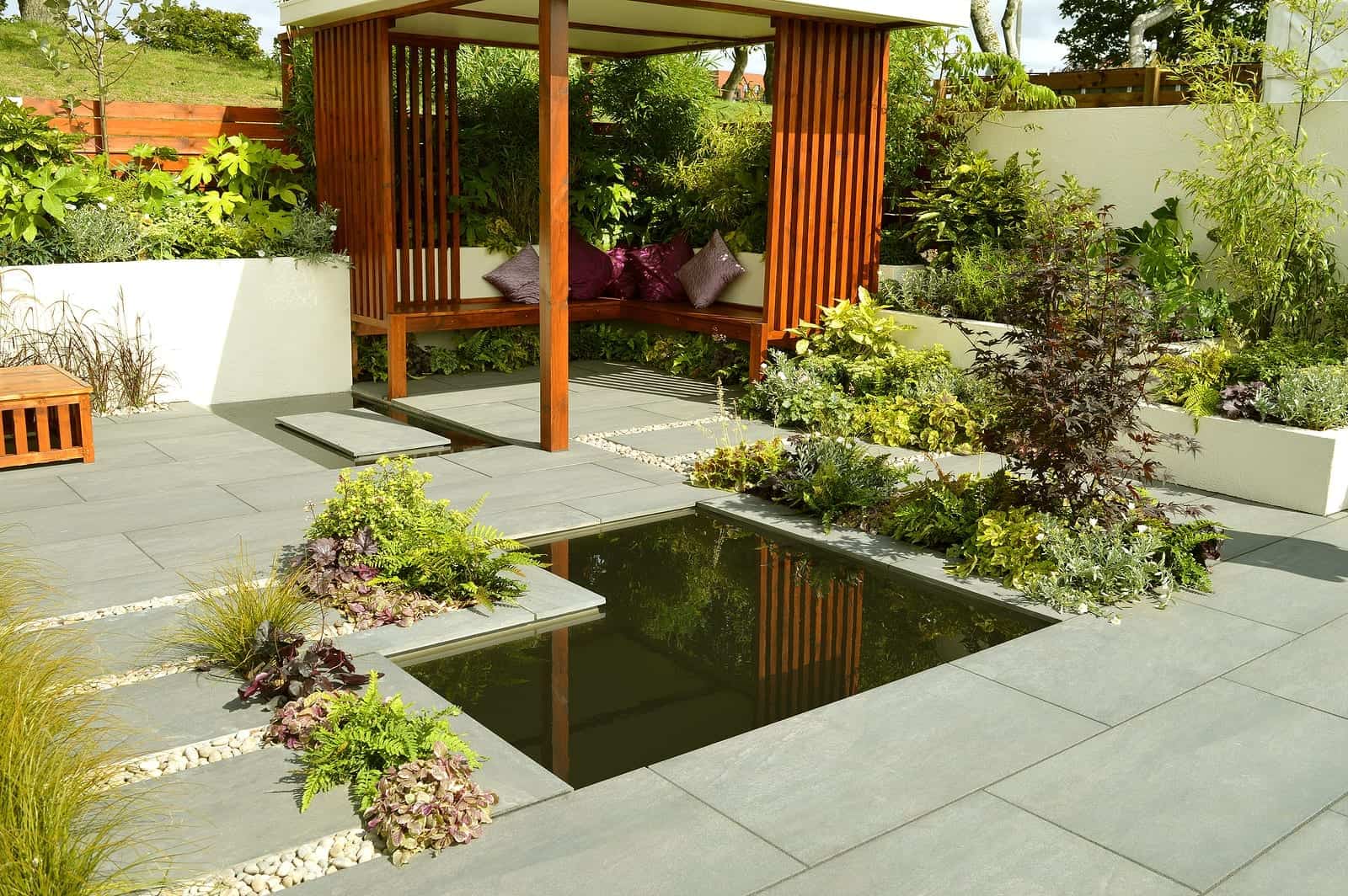
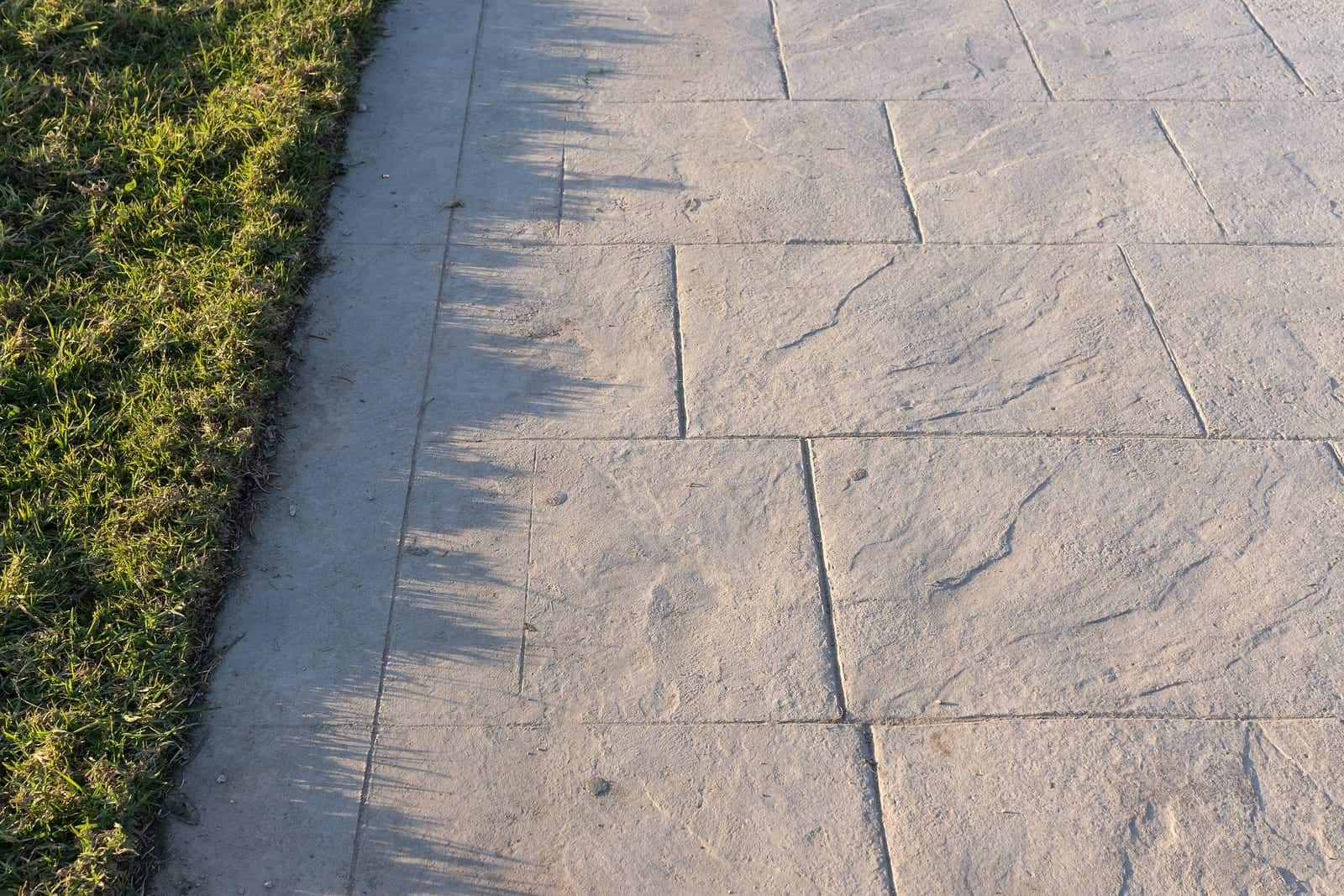
Concrete Pavers
Concrete pavers are a cheaper alternative product to natural stone. These paving slabs come in a variety of shapes and colours, usually mimicking brick or natural stone. They can be set straight into sand which allows them to shift and, therefore, withstand certain temperature changes without cracking. Permeable pavers are also available, allowing rainwater to filter through and help with on-site drainage.
Unfortunately, the downsides of concrete paving tend to outweigh the benefits. They’re prone to scratching, forcing you to look at the unsightly concrete base beneath, the geometric shapes limit the number of patterns that can be created, and weeds are prone to growing between the slabs. All in all, concrete pavers will likely cause you more problems than you may initially expect.
Other alternative deck options can offer much better overall value for money and will wear better over time. Keep reading to find out which decking materials we recommend most highly.
Pros: Semi-permeable slabs can help with drainage.
Cons: Installation requires excavation. Slabs can look too uniform. Weed growth between pavers.
Poured Concrete
If you decide that concrete slabs are not for you and are looking for a super low-cost option, you could contemplate a patio made from poured concrete. Mixing your own cement and forming a deck means you can create any shape or size. Sounds great, right? Well, we hate to be the bearer of bad news, but it’s not that easy. You see, concrete is prone to cracking if its mixture isn’t absolutely perfect, meaning that you have to know exactly what you’re doing each step of the way. There’s no room for error with concrete, making it an incredibly unforgiving option. Just like how too much flour will turn a cake into a pancake, one wrong move will leave your concrete cracking and caving under even the slightest pressure.
Additionally, choosing poured concrete takes away your ability to easily access important systems beneath it. To do so, you’d have to rip it all up and start from scratch. All in all, it’s only good for its low cost. But the struggles you’ll likely face make it a less than ideal alternative for the perfectionists among us.
Pros: Cheap product.
Cons: Not straightforward to install. Looks very stark. Needs regular washing to keep clean. Not likely to last without starting to deteriorate.
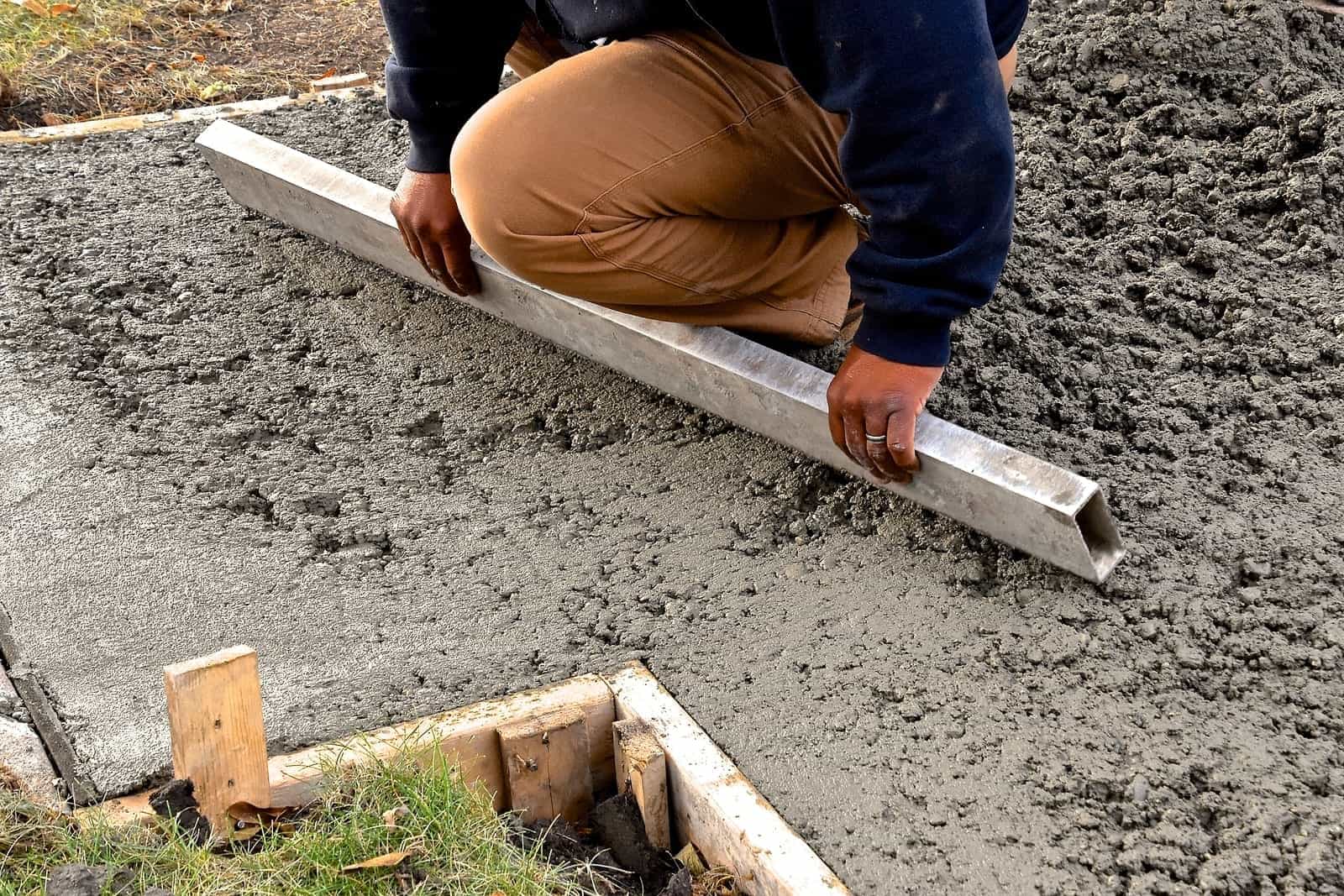
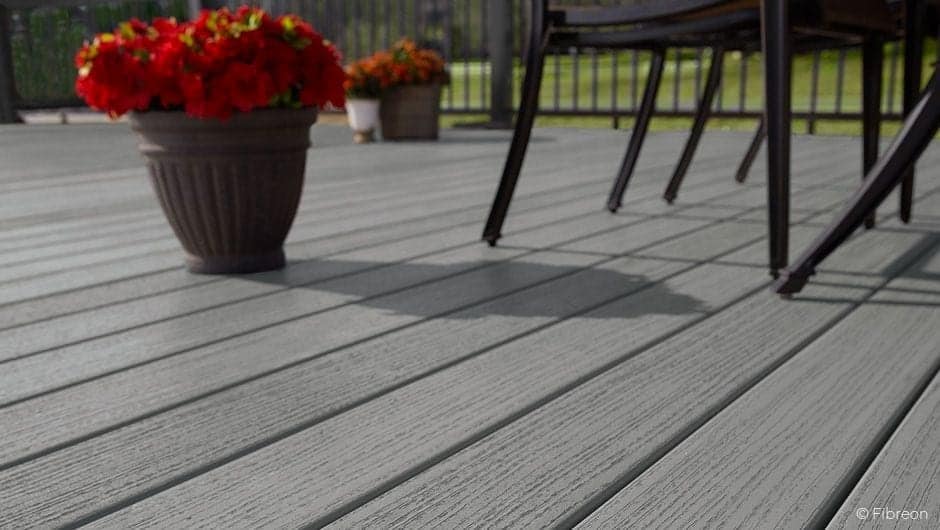
PVC Decking
Plastic decking is often chosen as a decking alternative because it’s typically cheaper than its main competitor – composite decking. Though this might seem appealing at the outset, you have to remember a phrase that has existed since the dawn of trade. You get what you pay for. Plastic decking may seem perfect at the time, but its problems will start to show far quicker than you may like. Between cracking, warping, splitting, and fading, plastic decking isn’t just cheap; it looks cheap.
If you’re having to replace parts of your decking time and time again, imagine how much that’s going to cost. Sometimes, it’s worth sacrificing a few more pennies to get some decking that’s built to last. There are plenty of options – cough composite decking cough – that come with warranties and quality guarantees, so we’d recommend considering those over an alternative that just won’t last.
Pros: Cheap to buy and easy to fit. No weed growth in between decking boards.
Cons: Looks like a cheap option. Splits and fades quickly. Non-slip resistant.
Timber Decking
Ah, timber decking. A family favourite whose popularity soared in the early 2000s, timber decking is a classic. A staple, even. That isn’t to say, however, that it’s the best decking choice; it’s just the most common one. What you may not know is that timber decking is incredibly high maintenance – between needing treatment every year and requiring constant sanding and sealing, it’s a needy decking option that’s bound to consume hours upon hours of your time.
Partnered with wood’s susceptibility to weather damage and warping, timber decking is losing its touch as the years progress. So, why not take a look at direct comparison between timber and its prime competitor – composite decking? You might surprise yourself with what you learn.
Pros: Relatively easy to install. No weed growth in between boards.
Cons: Looks that diminish. High maintenance. Prone to insect damage.
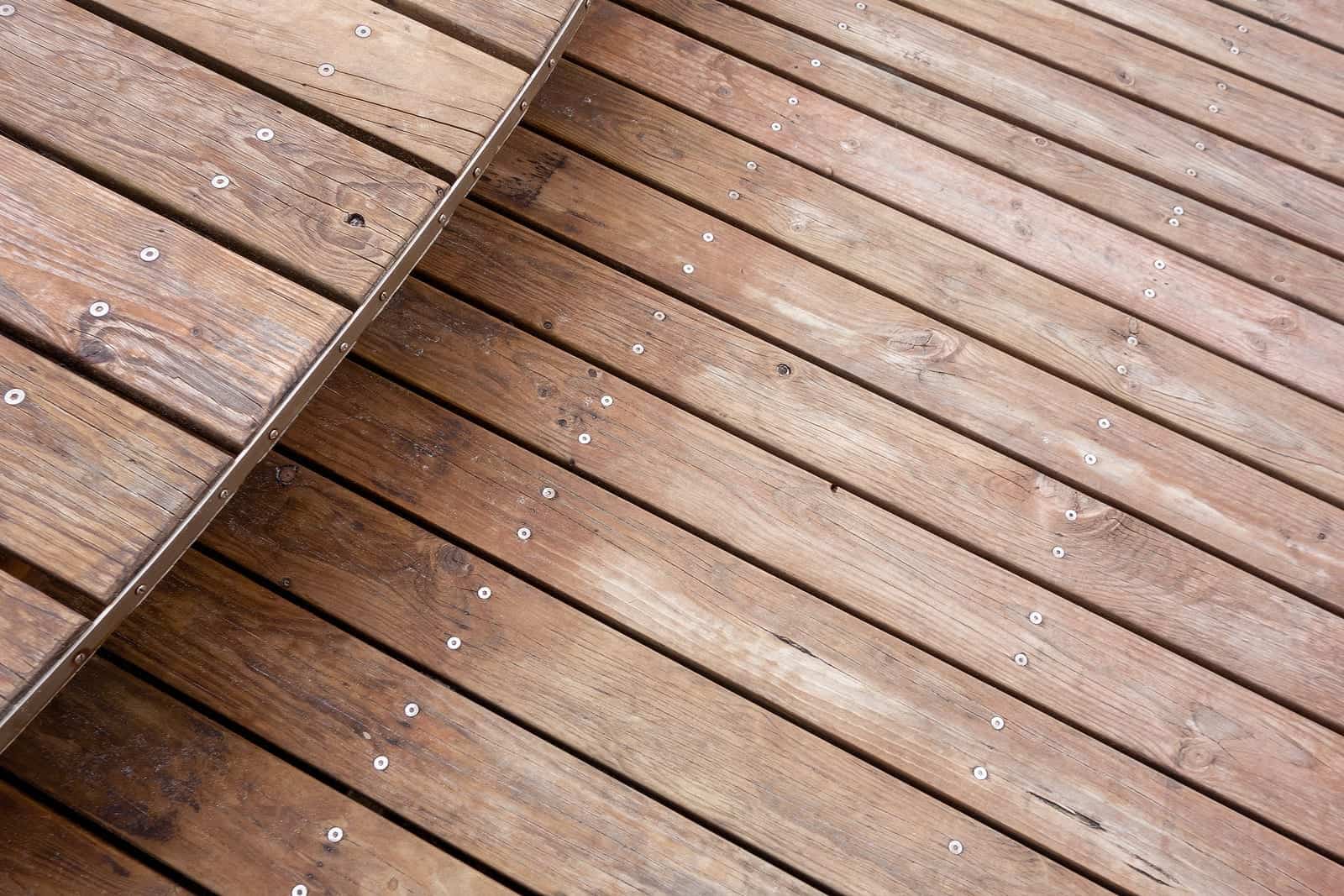
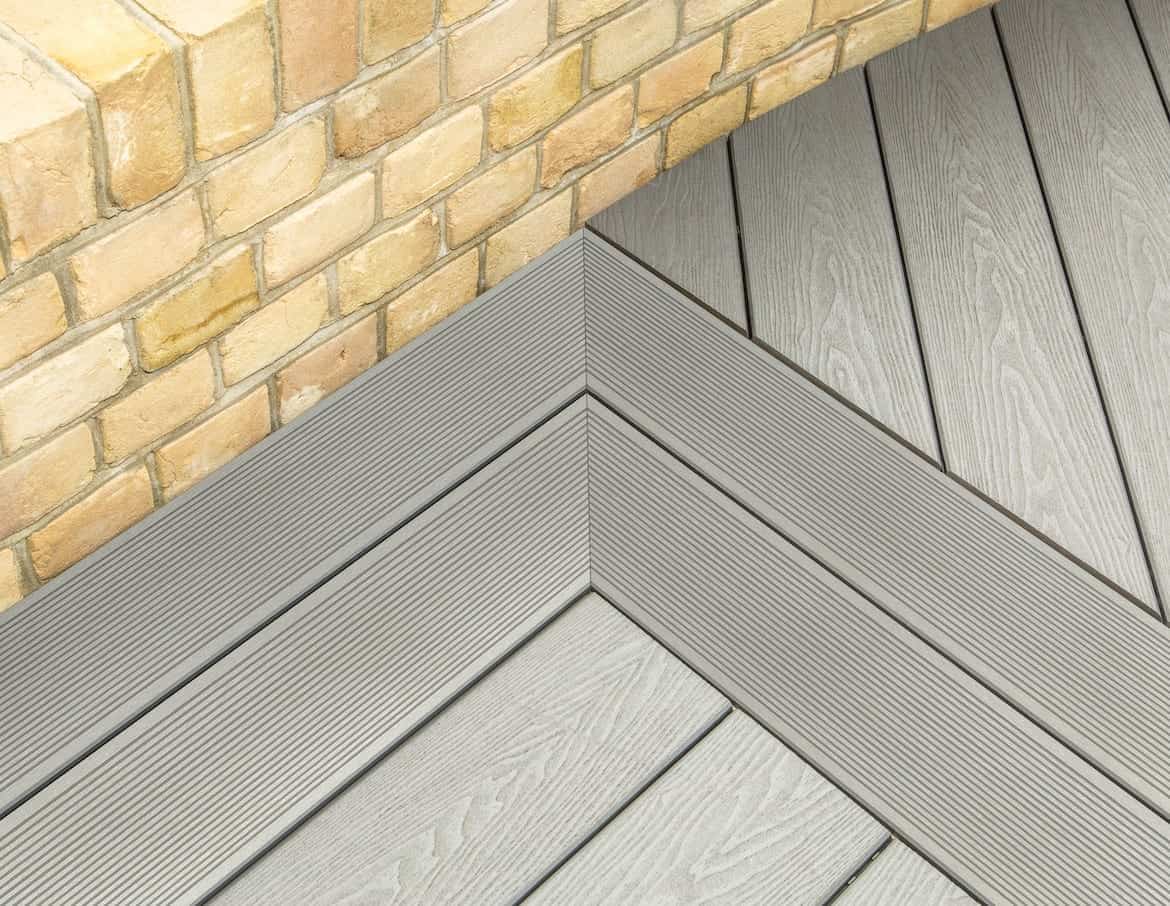
Composite Decking
Composite decking boards make great decking alternatives to wood and, as the name suggests, are made up of a mix of recycled plastics and real wood fibres. This combination produces a superior material that is low maintenance and resistant to mould, mildew, cracking, splitting, and warping. It’s weather-resistant, lightweight, and doesn’t splinter or rot. This means any composite decking structure is going to be much sturdier and safer than a traditional wooden one.
So, if you are searching for a good, solid decking base which looks fabulous, is easy to install, comes in a variety of colours and specifications, AND is guaranteed for 25 years, then our range of NeoTimber® decking boards are the ones for you. Our environmentally-friendly products simply tick all the pros boxes and none of the cons!
Pros: Ranges vary in cost (to suit your budget). Looks great. Low maintenance. Long life. Easy installation. No weed growth between boards.
Cons: Umm. None that we can think of!
Need Further Support or Advice?
If you’ve still got questions that have not been answered here, or you would like additional advice,
support or assistance then please give one of our friendly experts a call and we’ll be happy to help.
Just give us a call on 01530 382 180.
